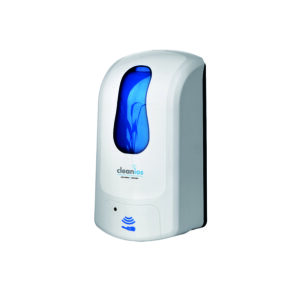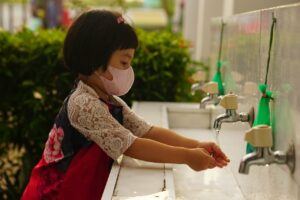

A Guide To Hand Sanitizer For Commercial Use
The pandemic has taught people how to use hand sanitizers and clean their hands regularly, especially before and after consuming food or entering/exiting any building.
The same applies to commercial establishments where sanitization has become integral to daily activities, making it a great alternative to water and soap-washing solutions.
However, what does having hand sanitizer for commercial use mean?
Here’s a guide on how sanitizers and hand health can help keep your retail space clean, safe and productive.
Workplace Hand Sanitizer
Commercial establishments, including offices, restaurants, gyms, etc., involve a lot of traffic, which can magnify the infection transmission rate, given the footfall and diverse crowds assembling in a single place.
Hand sanitization is vital in preventing the risk of contracting harmful viruses or bacteria by killing microbes and making it easy to get rid of germs and other irritants without needing a visit to a restroom.
These are essential workplace elements in enhancing hygiene and cleanliness.
Positive Impression
Hand sanitizers at commercial places have become the norm. When placed conveniently across the retail facility, they often give a positive impression of the business while escalating overall health.

But not all hand health products are the same. They require the correct dispenser type to allow the sanitizer to flow from the bottle/unit to the individual’s hands and maintain a touch-free status.
USP vs Technical Grade: What Is The Difference?
USP Grade
USP” stands for United States Pharmacopeia, an organization that develops quality and safety standards.
USP-grade or “pharmaceutical-grade” ethanol must meet specific purity standards.
That would include maximum limits on the concentration of impurities that may be commonly found in ethanol.
For example, the maximum allowable level for acetaldehyde in USP-grade ethanol is 10 micrograms in every litre of ethanol.
This is equivalent to a concentration of 10 parts per million (ppm).
Safe For Use

USP-grade Ethanol is required for mass population.
Allowable and safe for children under 18 years of age.
Also, it is safe for use on women seeking to become pregnant, are pregnant or breastfeeding.
Technical Grade
Technical-grade ethanol has purity standards that are not as strict as USP-grade ethanol.
Technical-grade ethanol may contain acetaldehyde in the 800 to 1000 microgram range in every litre, equivalent to a concentration of 800 to 1000 parts per million (ppm).
Not Safe For Use In Every Case
Technical-grade ethanol is NOT safe for children.
Again, this product is for Adults only (18 years +), NOT seeking to become pregnant or breastfeeding.
Several other contraindications exist, such as not using it on damaged/broken skin or inhaling it.
Products manufactured with technical-grade ethanol may contain a stronger or different odour.
For more information, reference ahs.ca/covidppe
Shelf Life
Depending on the type, sanitizers have a shelf life of two to three years, after which they expire.
Hand sanitizers are made to kill 99.99% of germs, assuming they have more than 70% ethyl alcohol as an active ingredient, but this ingredient will dissipate over a couple of years.
Want To Know More?

To purchase top-quality hand sanitizing/automation, contact Cleanios Corporation for more information.
We are one of Canada’s leading chemical cleaning solutions companies, offering the best end-to-end service for any industry and sector.
Our state-of-the-art product lineup ranges from Surface Sanitizers to Concentrated Disinfectant cleaners and much more.
